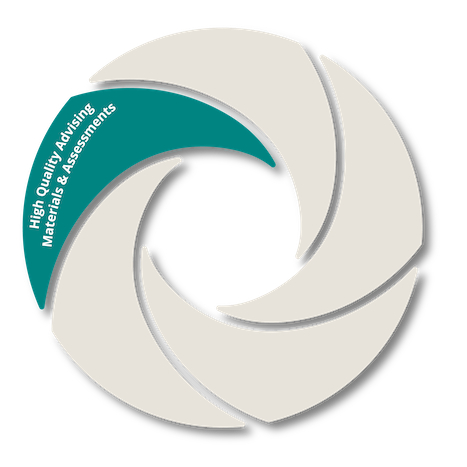District and Campus Commitments
These commitments describe the roles and responsibilities of the administrators who support, supervise, and manage the school counseling program staff.
- Administrators recognize high-quality advising materials and assessments such as guidance curriculum, interest and aptitude assessments, career exploration resources, and milestone-tracking tools.
- Administrators require that the selection of advising materials and assessments meet high quality standards.
- Administrators acknowledge the needs of parents and families and address potential constraints in accessing materials and resources.
- Administrators allocate a sufficient and reasonable budget to invest in high-quality, research-based tools and resources for students and caregivers to support delivery of the individual planning system.
- Administrators ensure that the school counseling program staff have adequate time and training for fidelity of implementation of advising materials and assessments.
Essential Actions
These actions describe what the most effective school counseling program staff do to implement and continuously improve an individual planning system.
Key Practices:
- Advising materials and assessments are routinely assessed for non-negotiable characteristics such as user experience, basis in research, alignment to student outcomes, and integration of college and career.
- Materials, tools, and resources employed by external partnerships identified in Lever 1, Essential Action 5, are annually re-evaluated against the defined quality standards.
- Sub-standard resources are discontinued, and consistent messaging is enforced across the district.
Key Practices:
- There is a continuum of parent and family touchpoints to communicate expectations for individual students aligned to grade-level expectations.
- Parent and family engagement tools that meet the defined quality standards are identified and appropriately disseminated.
- Advising assessment results are provided and interpreted for parents and families.
Key Practices:
- A lead point of contact, who develops a plan for implementation and monitors training and execution, is identified for all tools and resources.
- School counseling program staff and internal and external partners receive appropriate training on new tools and resources prior to implementation.
- Barriers to successful implementation, including school counseling program staff capacity, are assessed annually and appropriately addressed to maintain fidelity of implementation.

